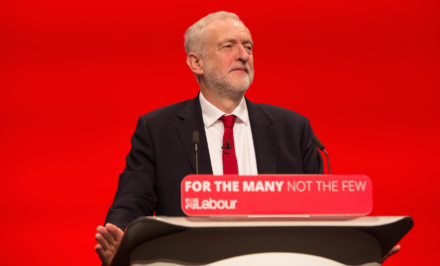
Sign up to LabourList’s morning email for everything Labour, every weekday morning.
Last night, the government survived Jeremy Corbyn’s no-confidence vote with a majority of 19. With every Conservative MP still holding out hope that their version of Brexit (or lack thereof) has a chance, and the DUP keen to highlight their usefulness in this exact situation, Theresa May didn’t suffer any rebellions. She was also helped by ex-Labour MPs John Woodcock, Ivan Lewis and Fiona Onasanya, who abstained. After the result was announced, the Prime Minister invited the opposition party leaders for Brexit talks – but Corbyn called on her first to rule out ‘no deal’. And this stand-off dominates the news today.
As soon as the PM decided she was safe enough from the threat of a no-confidence vote, after being stubborn and unresponsive at PMQs, then having Michael Gove make personal attacks against the Labour leader during the confidence debate, she apparently extended an olive branch (without a hint of irony). But in calling for cross-party cooperation over the last few weeks, Labour has been consistent in its approach: stop blackmailing us with your no-deal threat, and relax your red lines so that we have something to talk about. As Richard Burgon confirmed this morning, Tory chair Brandon Lewis has told Labour that the government refuses to remove any red lines or rule out ‘no deal’. We are at a standstill.
Corbyn’s team has presented a nuanced argument for its ‘rule out no deal’ demand and the narrative will likely get lost in translation to the wider public, aided by coverage such as the Daily Mail’s “Wrecker Corbyn” splash. And despite supposedly speaking outside No10 last night as the Prime Minister, not a party political figure, May said she was “disappointed” by Corbyn’s decision and even had the cheek to ask others to “put self-interest aside”. So Labour’s no-deal demand as a “starting point” for “substantive talks” will be made to look unreasonable to voters. Why do it?
Well, for one, ruling out ‘no deal’ could lose May her DUP backing and bring down the government. And though keenly aware of the fragility of the confidence-and-supply deal, May does have to act soon. Every option – extending Article 50, conceding on customs union membership, no-deal – risks resignations. She is faced with the same choice as ever: keep the gridlock, or drop hard Brexiteers and scrap some red lines to reach a compromise deal (at which point Labour could win a well-timed no-confidence vote).
More than ever, Labour wants to show that it is ready for an election. After releasing a new party political broadcast last night, Corbyn will be making a speech in the very marginal Tory seat of Hastings this morning. On Amber Rudd’s turf, he is expected to set out Labour’s next steps for Brexit and flesh out his response to May’s talks invitation. We’re unlikely to be surprised by the speech content – no such luck, People’s Vote campaigners – but interest lies in whether Corbyn can convince the country he isn’t contributing to the mess in Westminster.
Sienna @siennamarla
Sign up to LabourList’s morning email for everything Labour, every weekday morning.




More from LabourList
Tom Belger column: ‘Why is Labour making migrant exploitation easier?’
Ashley Dalton resigns as health minister for cancer treatment
Paul Nowak column: ‘Labour must focus on the basics’